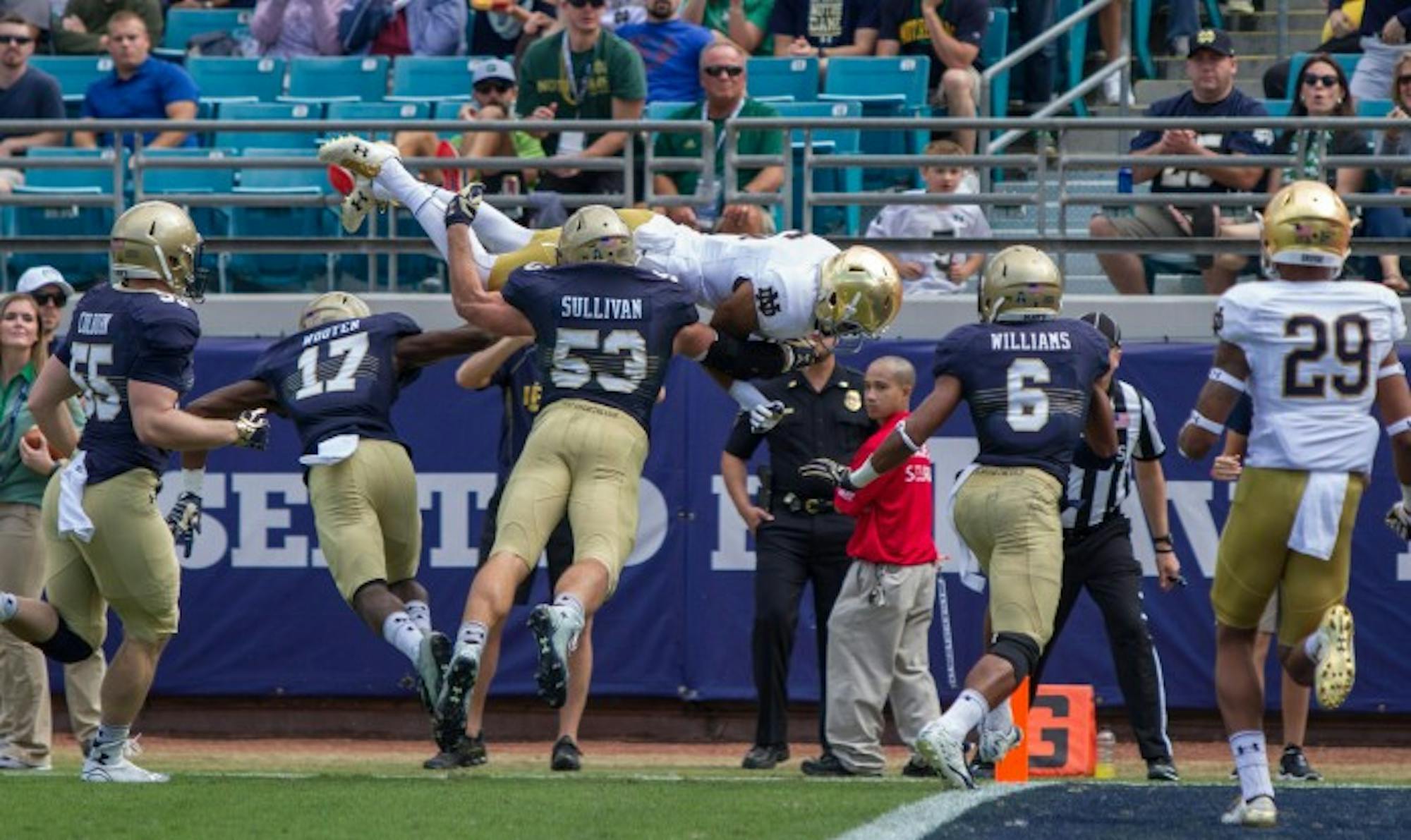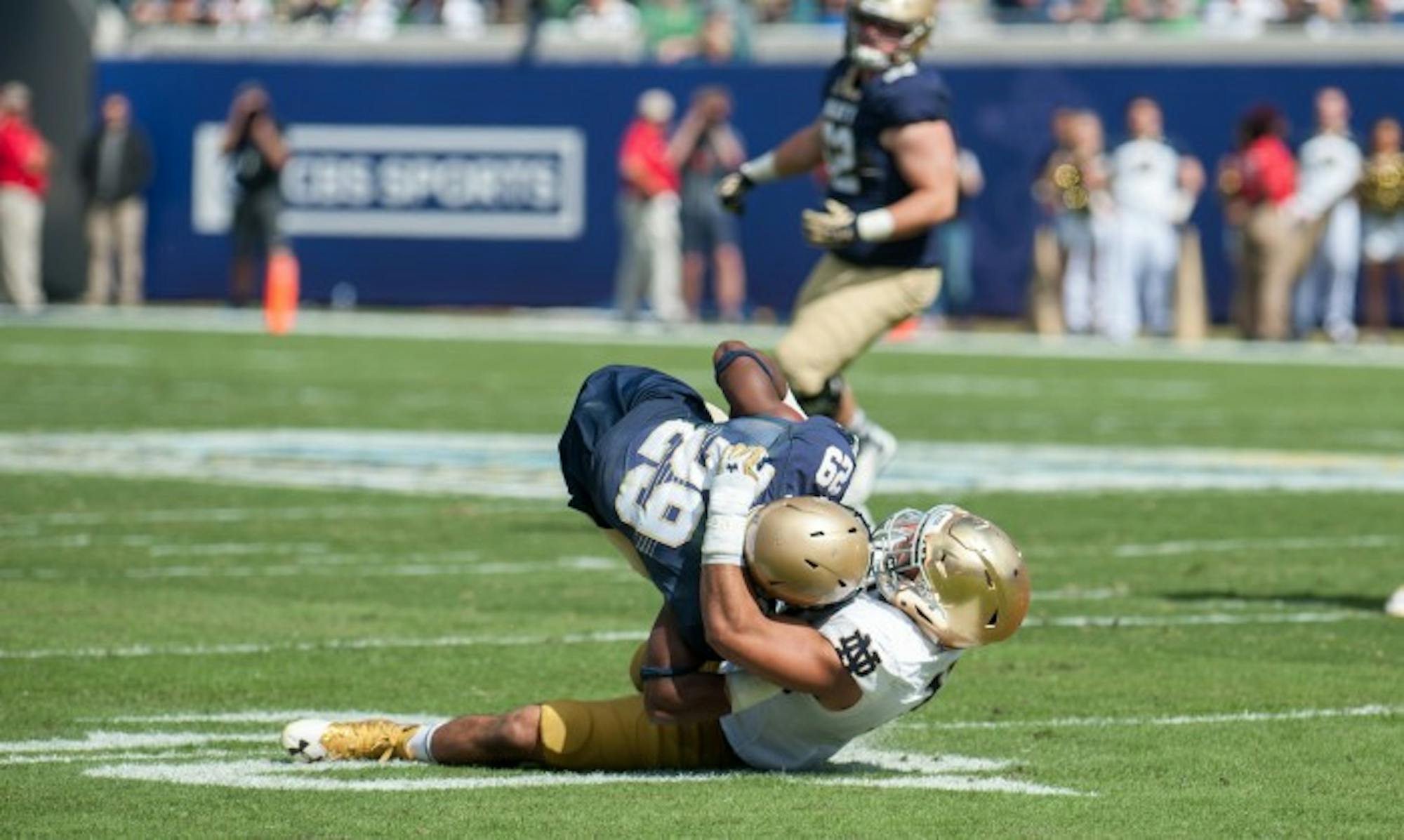JACKSONVILLE, Fla. — Honestly, it wasn’t that bad.
There have been performances by the Irish this season that were undeniably, inarguably, painful-to-watch bad. For example, the secondary getting burned over and over again at Texas, or DeShone Kizer throwing a pick-six to put Stanford on the board, or the defense missing tackles and assignments that allowed Duke to post 498 yards of offense, or the play calling against N.C. State that literally flew in the face of the weather conditions; the list goes on.
Notre Dame’s 28-27 loss to Navy was far from great, but it certainly did not hit the wretched lows that defined the season early on. And the sad reality of 2016 is that those are the only standards Irish football can be held to now.
When a team has the rare discipline to commit zero turnovers and only one penalty all game, as was the case with Navy, it will be difficult to beat. Notre Dame came close.
The Midshipmen’s triple option has been particularly potent this year, and for such a young defense, Notre Dame did a respectable job containing it by allowing 14 points per half. It may have allowed fewer, had the Irish special teams unit not been called for having 12 men on the field when Navy was about to punt.
Some might say that penalty is the perfect example of the boneheaded mistakes that have plagued Notre Dame all season. This would be accurate if the players and coaches had been so incompetent that they had not noticed there were 12 men on the field.
In reality, though, the call was the result of a hustling player being just a step or two too far from the sideline when the ball was snapped — a call that head coach Brian Kelly said two officials disagreed with. So while unfortunate and avoidable, there’s been worse.
Offensively, the Irish had no turnovers and scored on five of their measly six possessions. Kizer threw for 223 yards and three touchdowns. Notre Dame ran two times more than it passed and managed a per-carry average of 5.1 yards, a full yard more than its season average of 4.1.
The last field goal is the one that evoked outrage and controversy — because what would this Notre Dame team be if it left fans without outrage and controversy?
Notre Dame was down 28-24 with about seven and a half minutes to go. It was fourth-and-4. Kelly chose to take the safe points, hoping that his defense would be able to stop the Midshipmen with time left. Even if they score, he thought, it leaves enough time for the Irish to drive down and try for eight points.
Of course, the defense was unable to do so. Time expired. Now the Irish are 3-6.
However, hindsight is 20/20. Consider the alternative: the offense goes for it. If they make it and score soon after, they’re winning, but Navy probably has plenty of time to respond. If they don’t make it, the Midshipmen have the ball up four with plenty of field to run out the clock. A field goal would have put Navy up seven, a touchdown 11.
Yes, Navy had just burned through nine minutes on its previous scoring drive, but that was only possible because of the special teams penalty. Before then, the longest Midshipmen drive had been five minutes.
At the end of the day, Kelly’s choice went awry, but it wasn’t for lack of reasoning. There was a great deal of risk either way.
This loss, to a good team, was not due to overwhelmingly poor execution or bewildering decision-making. And so, judging by the standards set by Notre Dame’s previous seven games this season, it truly was not that bad.













